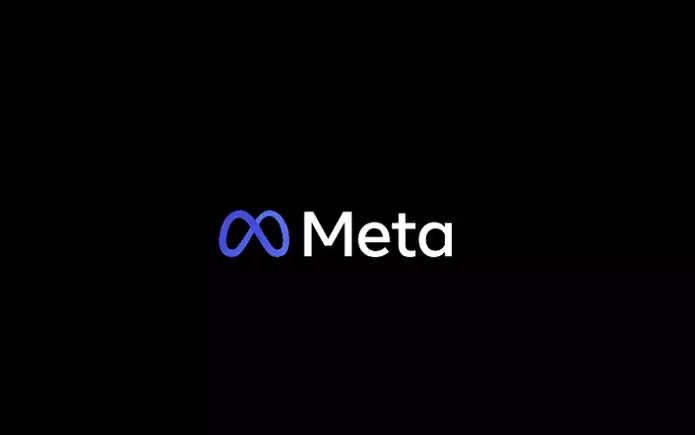Meta, the tech titan behind social media giants Facebook and Instagram, has made bold proclamations about distancing itself from political content. However, a closer examination of its practices reveals a stark contrast between its stated intentions and actual operations. Recent reports have highlighted that Meta continues to profit from the proliferation of political misinformation across its platforms, all while presenting a façade of distancing itself from the chaos of political discussions. The paradox lies in the fact that while Meta asserts its aim to create a more harmonious online space, the reality is that it remains an instrumental player in the political discourse landscape.
Facebook, specifically, has recently been accused of hosting a multitude of misleading ads related to upcoming elections, in blatant violation of its own policies. These ads often go beyond simple misinformation, with some featuring grotesque and alarming imagery designed to provoke outrage and fear. For instance, visuals depicting prominent political figures like Vice President Kamala Harris in disturbing contexts are just one example of how the platform has become a channel for politically charged content that spreads misinformation. The juxtaposition between Meta’s efforts to limit political content and the reality of its platforms being vehicles for misinformation raises undeniable questions about its sincerity in this endeavor.
To understand the current state of affairs, one must take a look back at the historical precedents that have shaped Meta’s trajectory in political content regulation. The 2016 U.S. Presidential election stands as a hallmark case where foreign interference via social media emerged as an alarming concern. Russian operatives exploited Facebook’s vast reach to spread divisive narratives, thereby igniting discord among the electorate. This experience led to Meta CEO Mark Zuckerberg facing intensive scrutiny before Congress, catalyzing a call for greater accountability in the regulation of political content on social media.
In response to this outcry, Meta has made concerted efforts to distance itself from politics. This shift involved dismantling its news section and reevaluating partnerships with news publishers. Despite these changes, reports indicate that the company still profits immensely from political advertising. The irony is palpable as Meta attempts to pivot towards a narrative of “less division” while simultaneously reaping financial rewards from the very content it purportedly seeks to avoid.
Meta’s strategy in dealing with political discourse appears to be a double-edged sword. On the one hand, there is the desire to create a platform free from hostility and divisiveness, as articulated by Zuckerberg in various statements. He emphasized that user feedback indicated a desire to remove political conflicts from their social media experience. On the other hand, the company’s reliance on user-generated content means that it cannot effectively eradicate political discourse without alienating a significant portion of its user base.
This contradiction becomes even more evident when examining its new platform, Threads, aimed at facilitating real-time, open conversations. If Meta continues to suppress political discussions, the platform’s viability could diminish, as users often engage enthusiastically in political dialogue. Navigating this complex landscape requires a nuanced approach, and Meta must grapple with the fact that discussions about politics will persist regardless of its policies.
Meta’s current framework categorizes political content rather vaguely, leading to confusion among users and advertisers alike. The platform claims to classify political content based on its potential relevance to government and elections. However, the ambiguity in this definition creates challenges in enforcement and user understanding. This lack of clarity could ultimately fuel the very divisions Meta seeks to avoid. A more precise delineation of what constitutes political content is necessary for the platform to effectively mediate these discussions without falling prey to rampant misinformation.
As the U.S. elections approach, the scrutiny around Meta’s handling of political content will likely intensify. There may be increased calls for transparency concerning its policies and enforcement tactics, and any missteps could further stain its public image. Thus, adapting its strategy in alignment with evolving user feedback and the shifting political landscape is crucial.
Ultimately, Meta’s challenge lies not just in regulating political content but in fostering a genuine environment for healthy discourse. Completely eliminating political discussions is neither feasible nor necessarily desirable; rather, reframing the conversation and promoting informed dialogue should be the guiding principles. As Meta contemplates its next moves, there is a pressing need for balance.
The company stands at a crossroads: To thrive, it must cultivate a user-friendly space while addressing the undeniable influence of political discourse within its platforms. The upcoming elections will undoubtedly test Meta’s resolve to maintain a semblance of order amid the cacophony of voices vying for attention. Whether it can navigate this intricate terrain will determine its future relevance and credibility as a social media giant in a politically charged environment.


Leave a Reply